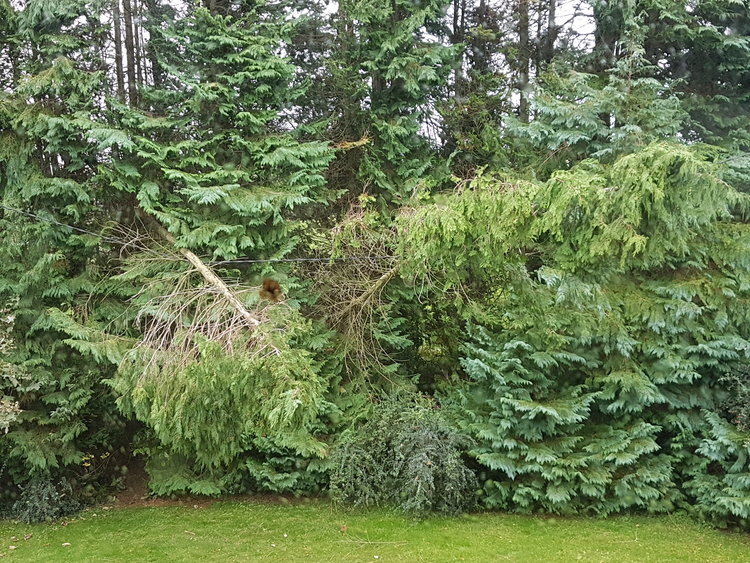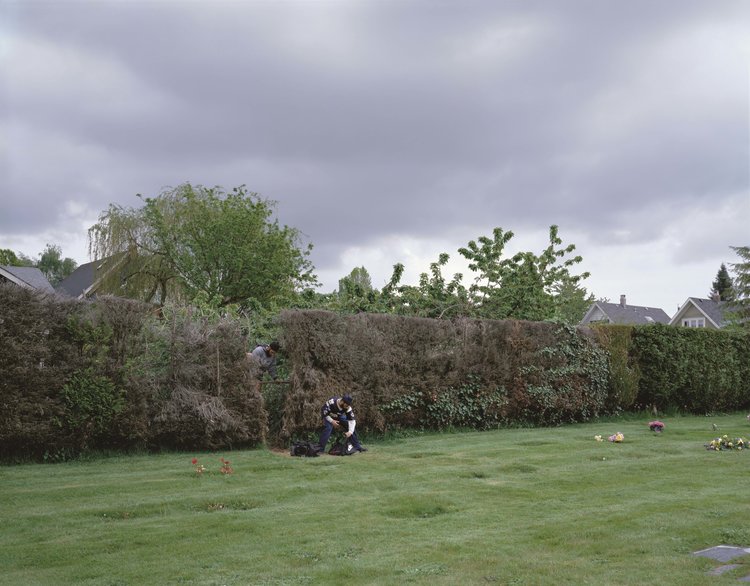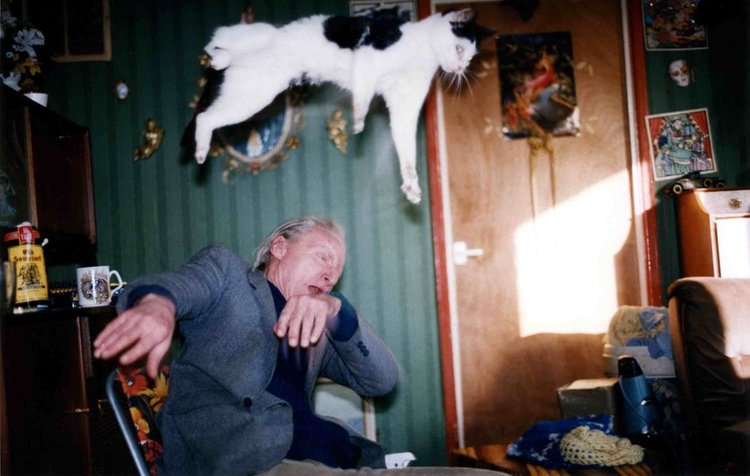Art Encounters | The Perfect Ophelia/ An Illusion of Ends
‘Every set of phenomena, whether cultural totality or sequence of events, has to be fragmented, disjointed, so that it can be sent down the circuits; every kind of language has to be resolved into a binary formulation so that it can circulate not, any longer, in our memories, but in the luminous, electronic memory of the computer,’
Jean Baudrillard, The Illusion of the End.
I had intending finishing up the Art Encounters series with the stuff on Radiohead and involuntary memory. But after submitting the last post, I found myself at something of a loggerheads, mourning something that was no longer technically a living entity. Then Storm Ophelia hit and I was taken with a feeling of boredom. I began thinking of beginnings and endings as violence inflicted on the world. We think of things as having ended, of being finished, but realise this is just a way of perceiving the world so as to help us move from one activity to another. We live under the illusion that things have come to an end simply to allow ourselves to change tact without thinking, to harvest an idea of life as made up of stops and starts. But maybe life doesn’t have stops and starts; things never really begin and end.
The problem in finishing a series of articles based on encounters is that, save from locking ourselves away, we can’t stop encounters from occurring. Having decided to stop the series at article numero twenty I became conscious I was killing something off. But I wasn’t bringing something to an end, I was imposing an artificial end on it. There were still so many ideas floating around in my head based on encounters I was having or might soon have. But none of these seemed to generate enough momentum for me to lift the artificial end I had decided to momentarily impose on the Art Encounters series. Until the storm. I felt hamstrung, in that ending something I had grown to habitually enjoy doing had affected my mood- and I was stuck. Then Storm Ophelia hit with vengeance, taking out a series of trees around our house and keeping us without leccie for a week. This sudden interlude, that brought me up close to the pure chaos of nature, changed things. On the Monday, there was an almost tropical feel in the air. Winds were swirling – to an almost surreal degree – and bits of debris flew around in patterns that were almost poetic in their demeanour. The electricity shut down at two o’clock and the phone network became implacably weaker, slowing down our internet to render it impossible to use. At one point I just stared out the window, deliberating on the possibility that this is the impending apocalypse. I thought ‘is this how the world ends? And if so, will we even experience it as an end?’

My wife and my two kids were scared, as was I, because trees that the ESB men would describe later in the week as major hazards surround our home. When two trees snapped in half and lay hanging suspended on an electricity line, it was difficult not to imagine that these were the first of many: the first victims of Ophelia’s incessant rage upon us. Then word started to filter in that a woman had died in Waterford, and a man who had attempted to cut down a tree in Tipperary was also tragically killed. With the storm moving across the southern counties, venting a ferocity that has rarely been witnessed in my lifetime, all I could think about was the two broken trees hanging in my garden that were held aloft by a stretched electricity cable. I was initially compelled to photograph the scene – if this is the right word – for safety reasons. I needed to document the scene in case things really got out of hand and the ESB needed information about what was happening in my back garden.
I looked out, played around with the perspective of the camera phone, and then took a shot that seems to capture the exact condition of the trees. I attempted to post the photo on social media, and think nothing more of it. But when the storm passed over, and the wreckage was there for all to see, these trees were still hanging, suspended in a kind of limbo that seemed almost poetic in its subtlety. It was a kind of ramshackle version of an Anselm Kiefer sculpture, which could come crashing down at any given moment. I went into work the next morning and bumped into two colleagues (in quick succession) who work with lens-based media specifically and are more adept at photographic image making than I am. Both admired the quality of the image, as if I had intended to invest it with an aesthetic quality from the start. Both suggested that I do something with it (one of these colleagues is the artist Lorraine Neeson, whose work I wrote about in the first Art Encounters article published on this site). But what? In the days that followed I thought about the image more and more. I had never intended the photograph to be anything more than a document. Now I was taken with seeing it as some kind of artistic statement: an image that documented my back garden, but was/is also – to some extent – the expression of something personal to me.

The strange thing is I have a particular interest in artistic expression that takes documentary form (I have just written a book on this very topic in relation to film). I spend a lot of time perusing photography specifically that strives to both document a place at a given time while investing the image with qualities – not always obvious at first – that has a specific personal affect. One such example is Jeff Wall’s Boys Cutting Through a Hedge from 2003. Although at first glance the picture seems to be of a simple everyday activity involving two boys maintaining a suburban hedge, cutting it back to keep the Vancouver suburbs tidy, closer inspection reveals bunches of flowers have been left on the grass, ready to be either collected or put away. The cutting into the hedge, the violence involved in shaping and manipulating reality is – in this second sense – akin to the violence Wall as photographer/artist inflicts on the world around him, when he too manipulates reality to a desired end in picture making. Wall finds in everyday suburban activities – in this instance – a rather curious reflection on his activity as an artist. He finds in this everyday suburban scene an echo, a reverberation of the activities he undertakes as an artist (the flowers are instructive in this regard). As a result, he finds himself in the Vancouver suburbs.
Richard Billingham’s panoramic landscapes are also, in my opinion, equally compelling artworks. Images of wild overgrown spaces appear as a kind of intricate network of forms, similar to the cybernetic networks typical of the modern world. It is almost as if Billingham is searching for solace, time away from the chaos of modern technology, yet in in the very place he retreats to he finds similar chaos. I’m fascinated by the Untitled Panoramic series because of the deep correlation between the chaos of nature in these pictures and the chaos of working-class life depicted in earlier works (linking this series to the more established photos immortalized in the book Ray’s a Laugh). Billingham finds strange beauty in the most desperate of places.

As the weeks passed, I could not get this one photo taken during the storm out of my head. I had taken two photos that day, the first to document the impact the storm had on the outside trees, the second to capture the light from the fire when darkness was descending upon us when the electricity had gone. But the first was the one that intrigued. I had set out my thinking as follows: the image was bugging me because I saw in it, not the straightforward documentation of the space outside my house during the storm – which I can use to impart information when needed – but an expression of the impact a storm of similar proportions had on me in the year leading up to the storm. Just as artists can be drawn to wild locations for personal reasons, to express emotion, I felt drawn to this image of the trees for the same reason: it expressed my own inner emotions; the photo made me conscious of this. It was only when reflecting on the photo later that I understood the despondency that came over me having put an end to the Art Encounters series (of which this article is a part). I had decided to finish at number twenty, feeling I had reached a limit of what I could say. But the decision to stop felt like something was wrenched away. I had begun the series having moved to the country, in a deep state of grief after my father’s death and writing the articles was my a way of staying connected to the world while taking shelter. I had come to enjoy the immediacy of the internet, the conversations I would have with people who had read the articles. I also began to see the form the articles took as rhizomatic, taking off in any direction, as a very liberating, creatively free, way of writing.
When I looked at this photo again and again, a picture I titled not so originally Ophelia, the array of evergreens in my back garden became an expression of me: the trees hanging a part of me that had been broken, held up by the electricity wires that represented the process of writing. The writing of these articles in the last year had been my way of nourishing what was broken, overriding effects of a storm that was internal to my life and me. So when stopping this process, I was artificially ending something that didn’t really have an ending. And I was sad. The real storm eventually passed and we were without electricity for a week. The break from everyday reality that was afforded me by Ophelia’s arrival, had given me the time to reflect. I now thought ‘why end what doesn’t have an end? Why not finish when it suited me; if it turns to shit, it turns to shit. Nothing really ends. There is only the illusion of an end.’

Then Friday arrived, and we were still without electricity. I packed the car, in order to be ready to drive up to my Mum in Galway. Just as I was about to leave two ESB men called and asked where the trees were that were hanging against the wire. I walked up to the back of the house with both of them. ‘Jaysus they’re really fucked,’ one of the men said, ‘they’re the fuckers that are causing havoc up and down the country.’ ‘It’s amazing the way they’re held up by the wires though, isn’t it?’ I said to them as they maneuvered around while clutching a twelve-foot long saw. ‘Do you think we’ll be out for the weekend?’ ‘Ay jaysus no…you’ll be up and running again by lunchtime.’ ‘Brilliant,’ I replied blurting out words with a rush of blood ‘I have a photo here on my phone I took on Monday. I’ll show you if you like?’ ‘Hold on to it,’ one of the men said glancing half-heartedly in the direction of the phone I was holding up, ‘for old times sake.’ ‘Why…what do you mean?’ ‘Well, if you have any sense you’ll get rid of these fuckin’ trees.’ ‘And forget about the perfect Ophelia?’ ‘Perfect my fuckin’ arse,’ they both said in tandem, as the sun burst out and we all laughed together.
You can read previous Art Encounters here.
